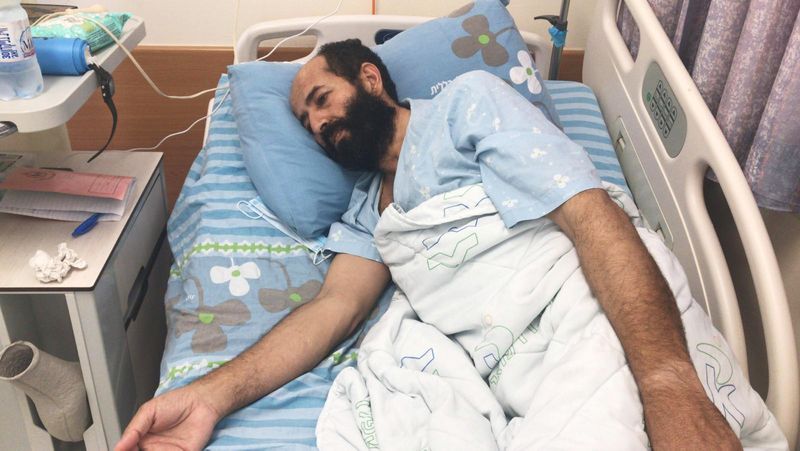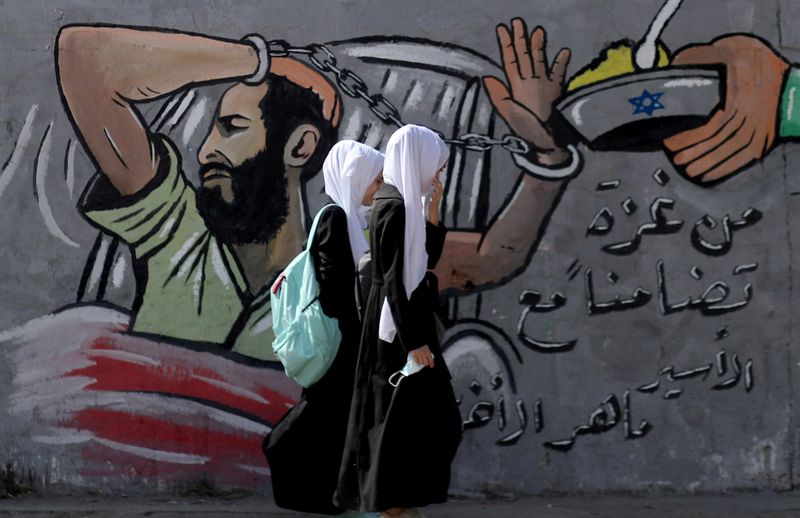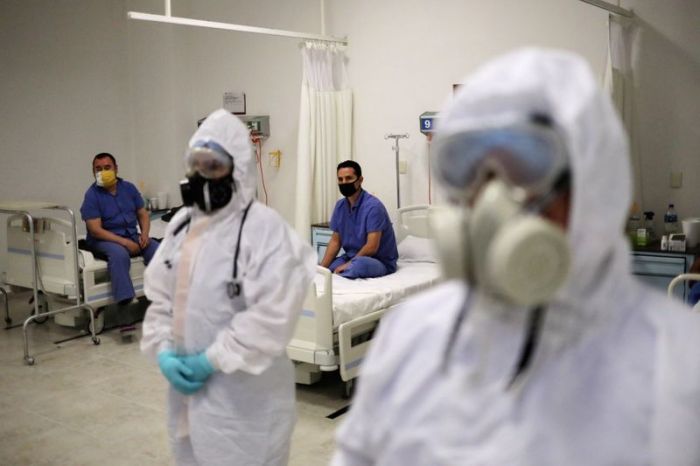RAMALLAH, West Bank (Reuters) – A Palestinian on Friday ended a 103-day hunger strike against being held without charge by Israel after being assured his detention would not be extended, the Palestinian Prisoners’ Club advocacy group said.
An Israeli security official confirmed that Maher Al-Akhras, 49, had ended his hunger strike and would be released on Nov. 26 at the end of his four-month detention. The official did not say whether Akhras had been offered any special assurances.
Akhras, a resident of the city of Jenin in the north of the Israeli-occupied West Bank, was taken into custody on July 27 under the Israeli “administrative detention” order. He began his hunger strike the day of his arrest.
Israel’s Shin Bet internal security agency has said Akhras was detained after it received information that he was an operative of the Islamic Jihad militant group, an allegation his wife has denied.
Akhras, who has been in an Israeli hospital and has suffered from heart pain and convulsions, had vowed to continue to refuse solid food despite an October decision by Israel’s Supreme Court not to extend his detention.
But after receiving what it called “a firm commitment (by Israel) not to renew his administrative detention … Maher Al-Akhras decided to end his hunger strike starting today, Friday Nov. 6”, the Palestinian Prisoners Club, which works on behalf of prisoners, said in a statement.
Akhras will remain in a hospital in Israel until the end of his detention, said the Israeli security official, who spoke on condition of anonymity.
There are around 5,000 Palestinians in Israeli jails, 350 of them under administrative detention, Palestinian officials said. Israeli officials say detention without trial is sometimes necessary to protect the identities of undercover operatives.
(Reporting by Ali Sawafta and Nidal al-Mughrabi; Additional reporting by Rami Ayyub; Editing by Jonathan Oatis and Alison Williams)



















